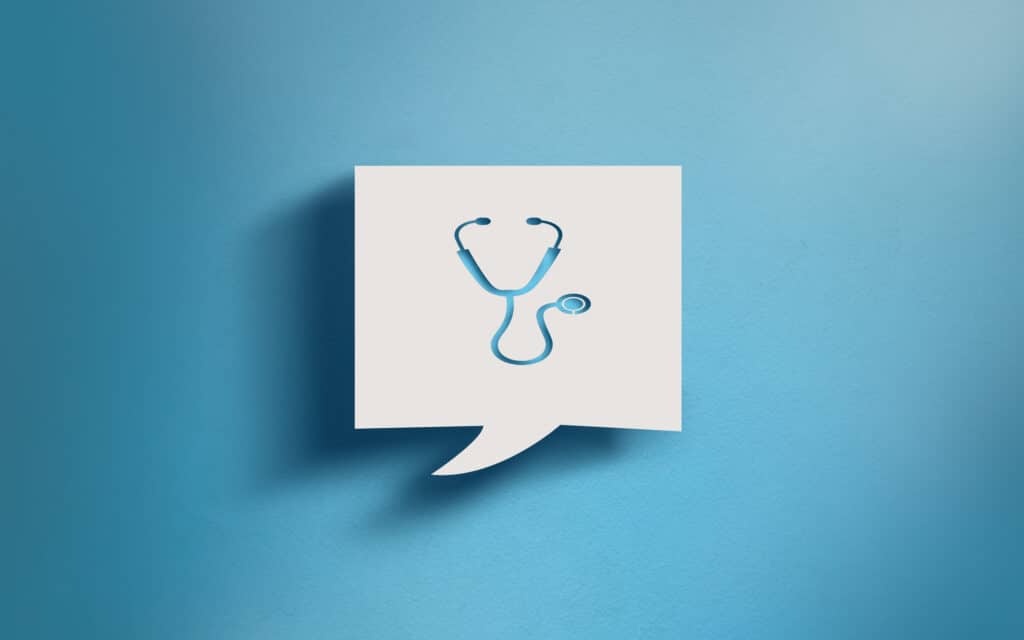
Smarter Call Handling: How Medical Answering Services Can Finally Work With Your EHR
Medical answering services aren’t just struggling with keeping patient requests accurate; they also need the ability to share those messages completely and easily with the rest of their teams. Traditional phone setups for medical practices are usually reliant on front office operators or call centers, but the information they manage may not always get to the right people. If you’re experiencing the same issues, it’s time to look at implementing a solution that can integrate with your EHR to give your clinicians a full picture

Press Release: TriageLogic Expands Global Health Access in Emerging Markets With Core Clinical Decision Support
TriageLogic, a leading provider of nurse triage solutions and clinical decision support, is moving to significantly expand access to essential health care for underserved populations across Africa, South America, and other emerging markets thanks to a strategic collaboration with PERSOWN Connect, a U.S.-based MedTech and FinTech SaaS company. This partnership places TriageLogic’s core triage intelligence and evidence-based protocols at the center of a new delivery model, combining telehealth connectivity and standardized clinical pathways for frontline healthcare workers in low-resource communities. TriageLogic’s evidence-based AI triage protocols will power the clinical

Remote Patient Monitoring Benefits That Hospitals Can’t Ignore
Use RPM to Strengthen Care, Reduce Readmissions, and Improve Outcomes By now, healthcare systems have heard quite a bit about remote patient monitoring and how it works. While there are still plenty of hospitals that have yet to adopt a program, the remote patient monitoring benefits available through modern technology have become impossible to overlook. With the right program, RPM can improve continuity of care, reduce costly readmissions, and support the clinical teams who manage chronically ill populations. The key is understanding what RPM can

Five Signs Your Practice Needs After Hours Nurse Triage Services
The Case for After Hours Nurse Triage Services While your practice doesn’t need to be open at all hours of the night, it still benefits from having someone available during that time to offer your patients medical guidance whenever they have questions or concerns. After hours nurse triage services are the obvious solution because they help patients better understand their own health and the severity of their symptoms, while also determining which doctors can better assist them. Not only does nurse triage offset burdens on

Press Release: TriageLogic’s MedMessage Automate Saves 400+ Staff Minutes per Week
Many healthcare administrators are searching for ways to improve front desk efficiency without compromising patient care. TriageLogic’s MedMessage Automate offers a new solution by automating the intake and routing of patient messages, reducing administrative burdens and preventing delays in communication between nonclinical operators, patients, and care teams. Traditional message intake often depends on front desk staff to manually record and relay patient concerns. This process can be prone to transcription errors and incomplete information. MedMessage Automate replaces this with a secure, AI-supported workflow that guides patients on

Press Release: TriageLogic’s MedMessage Automate Improves Patient Communication and Reduces Delays in Care
Healthcare organizations nationwide are facing a growing challenge: high patient call volumes, limited front desk workers, and the increased pressure to route medical messages appropriately. To offset this burden on nonclinical staff, TriageLogic has introduced MedMessage Automate, an automated medical answering service designed to streamline patient intake. MedMessage Automate eliminates the need for patients to wait on hold and instead gives them secure, dynamic intake forms to self-report their symptoms – including health concerns, refill requests, follow-up questions, and more – with an accuracy of over

Press Release: TriageLogic Highlights the Growing Need for After-Hours Nurse Triage Services
Modern medical practices are increasingly expected to provide continuous access to care, even outside of traditional office hours. To meet this demand, TriageLogic is highlighting the importance of its Nurse Triage On Call program, which is available 24/7 and designed to give patients timely, clinically sound guidance whenever they have concerns or questions about their health. After-hours nurse triage connects patients with licensed registered nurses who are trained to evaluate symptoms using evidence-based Schmitt-Thompson protocols. This service has been shown to reduce unnecessary emergency room visits, improve

From Patient Calls to Care Coordination: How Triage Software Transforms Clinical Workflows
How Triage Software Supports Call Centers Do you manage a busy medical call center that deals with nonstop phones, anxious patients, overwhelmed nurses, and providers asking for clearer patient notes? Gaps in clinical communication can quickly turn into patient safety concerns, and inefficient workflows can disrupt an entire health system. That’s why many call center managers benefit from triage software that can create more consistent, accurate, patient-centered documentation. For many organizations, TriageLogic’s myTriageChecklist® (MTC) has become that much-needed bridge, helping call centers manage their patient

Healthy Habits for the Holidays: Updated Tips From TriageLogic
Balancing Wellness During the Busy Season We like to remind patients and providers that holiday health is about balance, not perfection. Over the years, we’ve shared tips on how to maintain healthy habits during this time, with the goal of encouraging mindfulness, moderation, and meaningful connections. However, as seasonal demands evolve, so should our wellness strategies. That’s why we’d like to revisit some important tips that continue to be relevant, while offering updated, practical ways that can help both you and your patients maintain energy,

Implementing Secure Messaging in Nurse Triage Systems
Why Hospital Administrators Are Prioritizing Secure Communication Evolving digital technology is forcing hospitals and practices to find better ways of protecting their patient data. This is why secure messaging in nurse triage systems is so important, especially for those organizations that choose to outsource this service. For hospital administrators, secure messaging is about more than compliance. It’s also key to promoting faster clinical response times, better health outcomes, and safer communication between nurses, physicians, and administrative staff. At TriageLogic, our suite of solutions — from

Why After Hours Nurse Triage Services Are Essential for Modern Medical Practices
24/7 Patient Support for a 24/7 World Whether it’s a child’s fever late at night or a sudden bout of dizziness early on a Sunday, patients expect access to professional medical advice when they need it most. In today’s healthcare landscape, those expectations are becoming the standard. That’s where after hours nurse triage services play a crucial role. Nurse triage provides patients with immediate access to RNs who can evaluate their symptoms, offer evidence-based guidance, and determine the safest next steps in care. For providers,

How Automated Medical Answering Services Improve Patient Care
Reimagining Patient Communication With Technology Every day, hospitals and medical practices face a familiar challenge — too many calls, too few staff, and not enough time to handle every patient request with the speed and care it deserves. Doctors and administrators alike understand how these bottlenecks can lead to frustration, inefficiency, and even delayed care. Fortunately, technology is offering a new way forward through automated medical answering services. TriageLogic’s MedMessage Automate is designed to capture and organize patient messages using secure digital intake forms, helping
